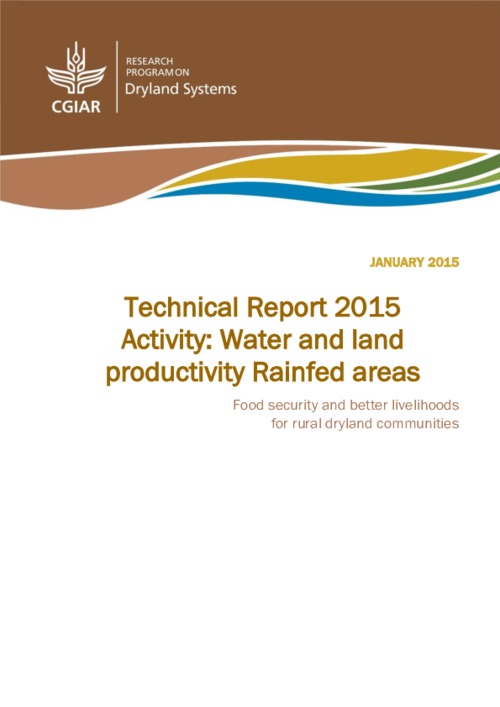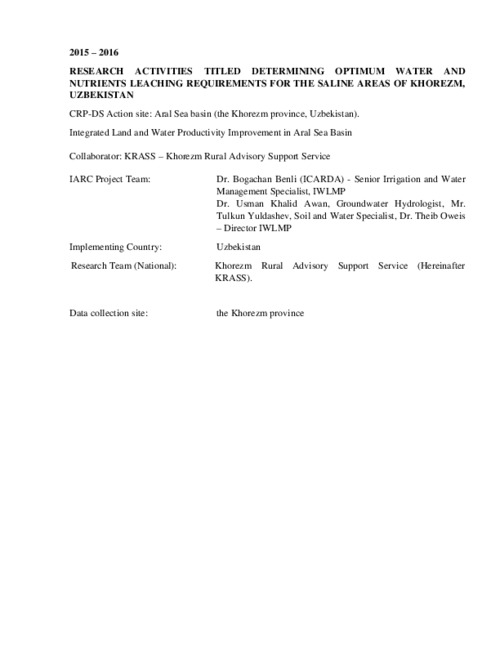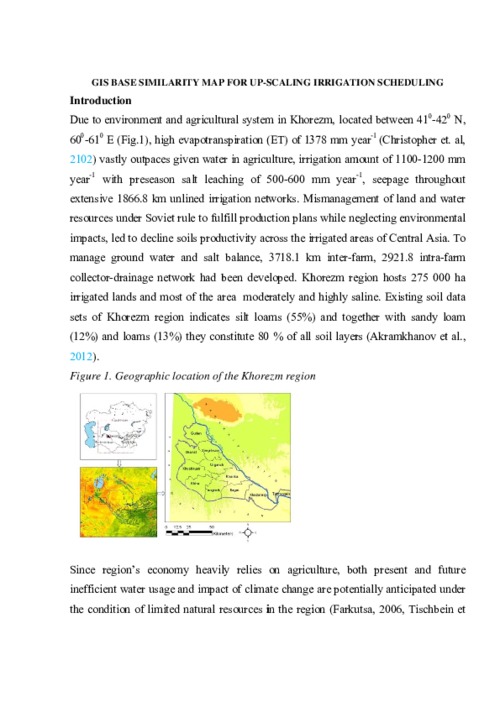Location
The International Center for Agricultural Research in the Dry Areas (ICARDA) was established in 1977. It is one of 15 such centers supported by the CGIAR. ICARDA’s founding mandate to promote agricultural development in the dry areas of developing countries remains highly relevant today.
ICARDA works with a tight focus on the problem-solving needs of resource-poor farmers, achieving this through the in-field delivery of its research outputs. Although global food production has increased by 20 per cent in the past decade, food insecurity and poverty remain widespread, while the natural resource base continues to decline.
International research centers such as ICARDA, which have helped drive previous improvements, continue to deliver new technologies to support sustainable growth in agriculture, and crucially, to work with a wide range of partners to accelerate the dissemination of these technologies.
ICARDA’s biggest strength is its staff – 600 highly skilled men and women from 32 countries. Our research and training activities cover crop improvement, water and land management, integrated crop-livestock-rangeland management, and climate change adaptation.
Other interventions include:
- Water harvesting - supplemental irrigation and water-saving irrigation techniques
- Conservation agriculture methods to reduce production costs and improve sustainability
- Diversification of production systems to high-value crops – horticulture, herbal and medicinal plants
- Integrated crop/rangeland/livestock production systems including non-traditional sources of livestock feed
- Empowerment of rural women – support and training for value-added products.
The ICARDA genebank holds over 135,000 accessions from over 110 countries: traditional varieties, improved germplasm, and a unique set of wild crop relatives. These include wheat, barley, oats and other cereals; food legumes such as faba bean, chickpea, lentil and field pea; forage crops, rangeland plants, and wild relatives of each of these species.
ICARDA’s research portfolio is part of a long-term strategic plan covering 2007 to 2016, focused on improving productivity, incomes and livelihoods among resource-poor households.
The strategy combines continuity with change – addressing current problems while expanding the focus to emerging challenges such as climate change and desertification.
We work closely with national agricultural research systems and government ministries. Over the years the Center has built a network of strong partnerships with national, regional and international institutions, universities, non-governmental organizations and ministries in the developing world and in industrialized countries with advanced research institutes.
THE ‘DRY AREAS’
Research and training activities cover the non-tropical dry areas globally, using West Asia, North Africa, Central Asia and the Caucasus as research platforms to develop, test, and scale-out new innovations and policy options.
Dry areas cover 41 per cent of the world’s land area and are home to one-third of the global population. About 16 per cent of this population lives in chronic poverty, particularly in marginal rainfed areas. The dry areas are challenged by rapid population growth, frequent droughts, high climatic variability, land degradation and desertification, and widespread poverty. The complex of relationships between these challenges has created a "Poverty Trap."
Members:
Resources
Displaying 236 - 240 of 431From destatization to land privatization to agrarian reform in post-Soviet Uzbekistan: How to support paradigm shifts to sustainable land use management practices?
On the eve of independence from the Soviet Union, a process of destatization, promulgated into Soviet law in early 1990, was proceeding under Gorbachev’s leadership. Yet, significant shortcomings in vision, influenced by historical ideology and contemporary friction, mitigated the full development of private land ownership. Leasing of land from collective (Kolkhoze) and state (Sovkhoze) farms was legally permitted and proceeded accordingly.
Land and Water Productivity: Technical report
Land and Water Productivity: Technical report.
Determining Optimum Water and Nutrients Leaching Requirements for the Saline Areas of Khorezm, Uzbekistan
Irrational water use and mismanagement are at the root of several environmental problems in the Aral Sea Basin, including secondary salinization. Pre-season leaching (February-March) is a common practice of farmers to manage soil salinity challenges. For example, farmers in the Khorezm region tend applying up to 600 mm of leaching volume to prevent accumulation of salts in the root-zone. However, excessive leaching volume causes the water tables to rise at 1-1.5 m depth which are dangerous depths.
Practical experience of growing pistachio in Kyrgyzstan
Animated demonstration of practical experience from a farmer perspective to establish pistachio farm in south of Kyrgyzstan. The script for the video was developed by the farmer himself leading step by step through his experience to learn about pistachio and experience of establishing pistachio farm on rangelands previously used for grazing.
Report on similarity analysis for outscaling results
GIS-based similarity maps to outscaling field scale research results






